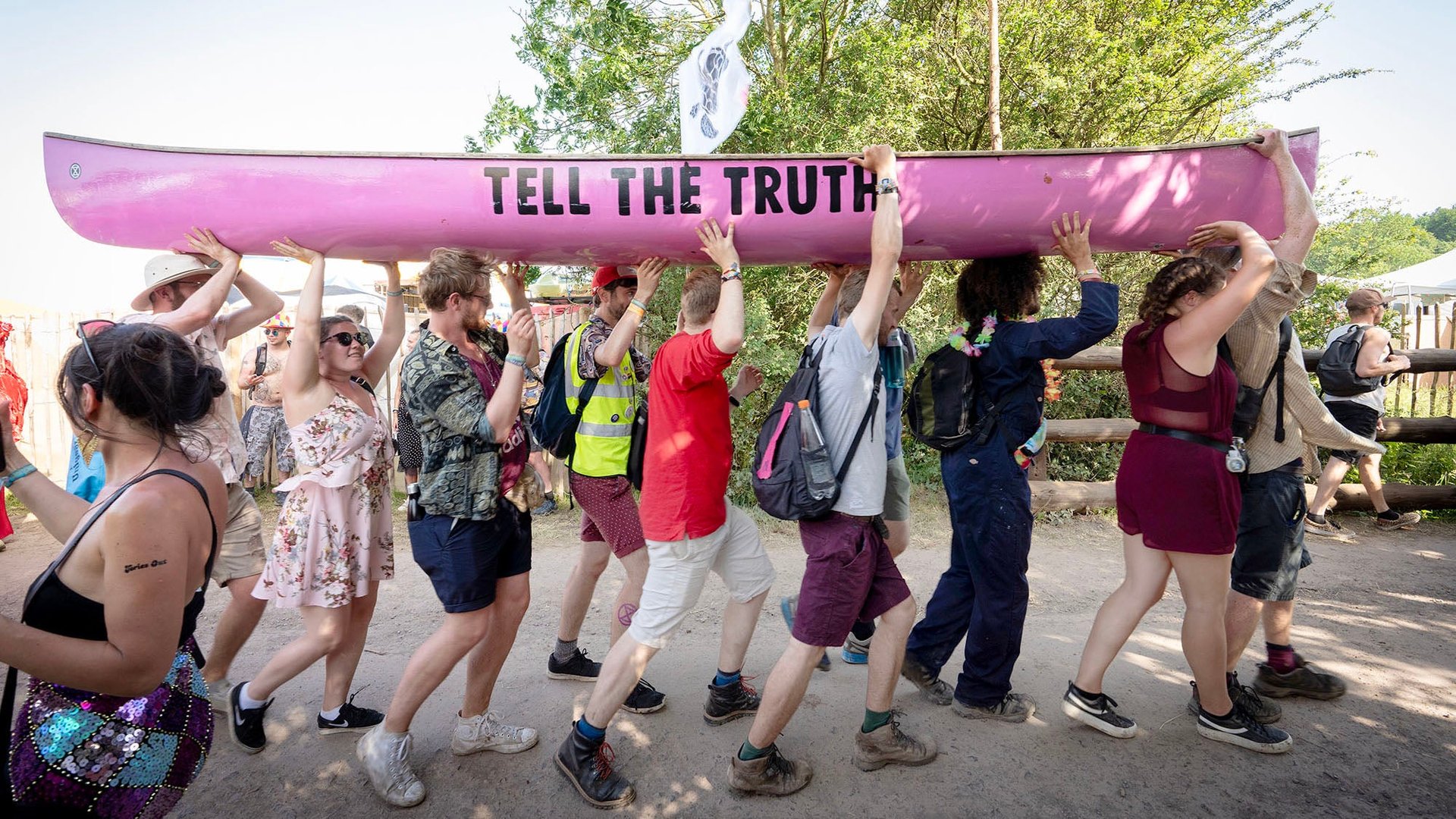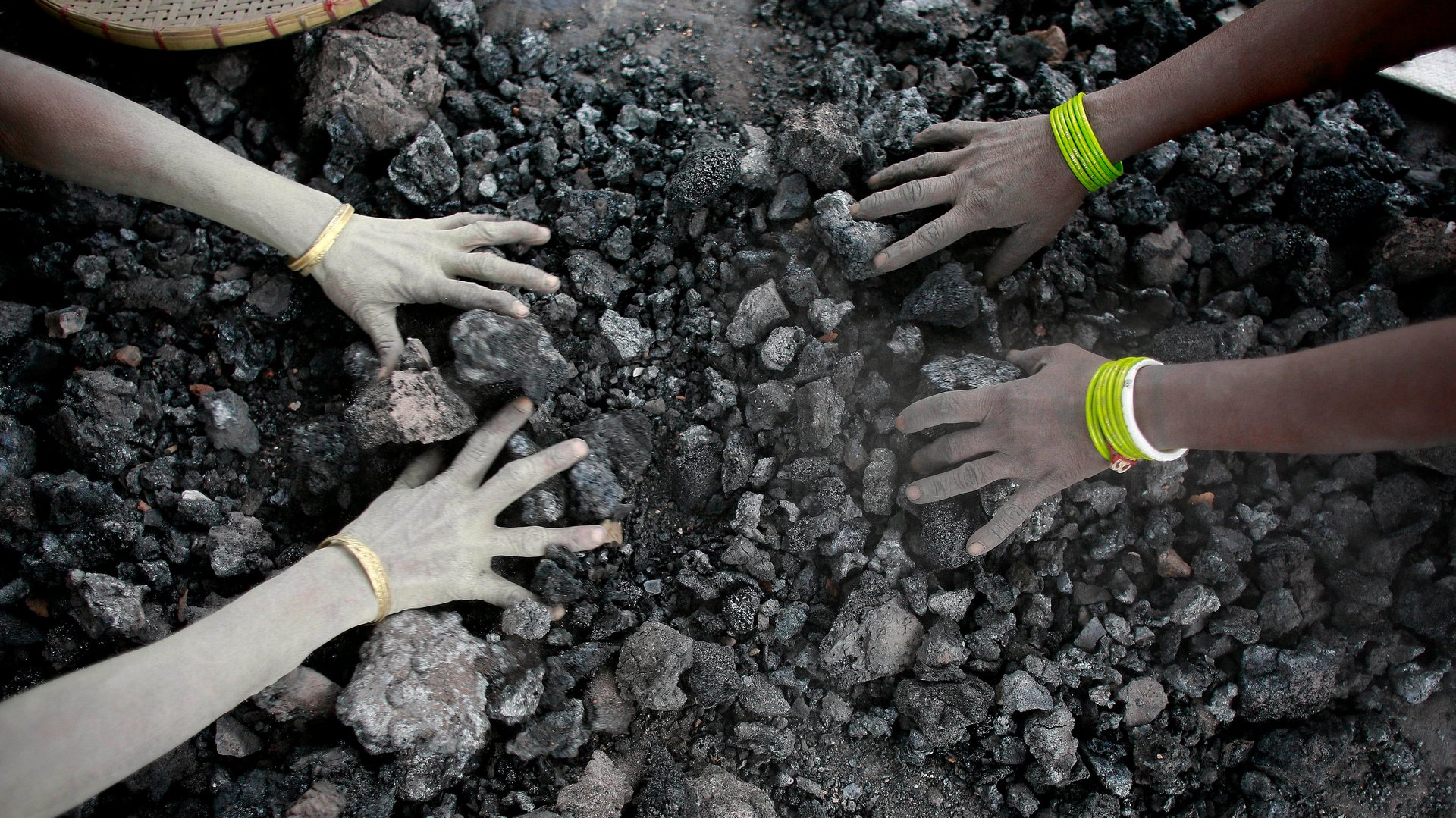The Race to Zero Emissions: no-coal Kenya, nuclear fusion, airplane contrails
Hello Quartz readers!

Hello Quartz readers!
We have two special features today. One is a profile of Vicki Hollub, CEO of Occidental Petroleum, and how she sees the oil industry surviving climate change. Another looks at Hollub’s bet on capturing carbon dioxide from the air and why she is looking to spend hundreds of millions of dollars scaling up a Canadian startup’s technology.
Here’s what happened over the past week that helped or harmed the world’s chances to cut greenhouse-gas emissions to zero.

🔽 Decreases emissions
1️⃣ A court in Kenya has stopped the construction of the country’s first coal power plant. The $2 billion 1 GW plant, financed mostly by Chinese firms, was expected to be built within miles of the Lamu archipelago, a world heritage site.
2️⃣ The UK and France passed laws that commit the country to net-zero emissions by 2050. Some 20 countries in the world have made or are mulling a similar (or more ambitious) commitment. Quartz is keeping a running list.
3️⃣ In April, the US generated more electricity from renewables (23%) than it did from coal (20%). And as the share of renewables grows, even some natural-gas power plants are becoming stranded assets. In California, GE announced it will shutter a gas plant 20 years sooner than its scheduled retirement.
4️⃣ The UK approved its largest carbon-capture plant, which will trap 40,000 metric tons of carbon dioxide each year from a natural-gas power plant. Though it’s a small start, it’s a big deal for a country that has struggled to support the technology because of flip-flops in government policy.
5️⃣ Commonwealth Fusion Systems, a US-based nuclear fusion startup, raised $115 million. Last year, Quartz published a deep dive on why there’s so much private money flowing into nuclear fusion.
Stats to remember
As of June 20, the concentration of carbon dioxide in the atmosphere was 413.82 ppm. Thanks to the amount of greenhouse gases we’ve dumped, global weirding is here. On Feb. 26 this year, the UK set the record for the warmest day in winter at 21.2°C. On Friday, Jun. 28, France set the record for the warmest day in its recorded history at 45.9°C—weeks ahead of peak summer in August.

0️⃣ Net-zero (for now)
1️⃣ Psychologists have thoughts about how best to talk to children about climate change. Have you had that conversation? If yes, please reply to this email with your experience.
2️⃣ Investors with $34 trillion in managed assets want G20 countries to do more to address the climate crisis. “A UN-backed panel of scientists has said limiting global warming to 1.5°C would cost at least $830 billion a year but the cost of inaction is thought to be much higher,” as per Reuters.
3️⃣ What counts as a green investment, anyway? The European Commission published a classification system defining which economic activities can be called “green.” As the sums invested in sustainability grow, such classifications could help distinguish truly sustainable investments from those pretending to contribute to the global race to zero emissions.
4️⃣ The world’s oceans have warmed 0.1°C more than previously thought. That’s bad news, because it leaves us with a smaller carbon budget—the amount of greenhouse gases we can still dump in the atmosphere—and thus less time, before we breach the 1.5°C target.
5️⃣ Climate protest round up: Thousands marched on Westminster in London in the “Time is Now” protest. Young protesters at the Democratic National Committee headquarters in Washington, DC demanded debate on the climate crisis. Protesters stormed the Garzweiler coal mine in Germany. Police tear gassed protestors in Paris at point-blank range.
This is no an ordinary lawsuit
“Of all the cases working their way through the [US] federal court system, none is more interesting or potentially more life changing than Juliana versus the United States. It was filed back in 2015 on behalf of a group of kids who are trying to get the courts to block the US government from continuing the use of fossil fuels. If they won what they’re asking for, which is get the federal government out of the business of in any way subsidizing fossil fuels and get them into the business of dramatically curtailing greenhouse gases in order to protect the children, that would be enormous.” – 60 Minutes, CBS News

🔼 Increases emissions
1️⃣ Government subsidies for coal are on the rise. G20’s annual spend propping up coal-fired power increased from $17 billion to $47 billion between 2013 and 2017.
2️⃣ Expansion of airports is a bad idea. Road-building and road-widening projects in the 20th century “actually contributed to encourage further car use and that quickly filled up the roads again. Expanded airports are likely to mean more and cheaper flight routes, which, in turn, will encourage more flying,” as per Carbon Brief.
3️⃣ The warming effect of airplane contrails is expected to triple by 2050. “In the short term, the climate impact of the clouds formed by jet exhaust is greater than the warming effect of aviation’s greenhouse gas emissions,” as per InsideClimate News.
4️⃣ For years, scientists haven’t been able to account for all the methane they find in the atmosphere. That’s bad because methane has a warming effect that’s 30 times greater than that of carbon dioxide. It seems one of the missing sources is trees in tropical wetlands. That’s no argument for cutting trees, which overall sequester more carbon than they produce. But when a growing number of people and corporations are buying offsets to grow forests, it’s important that the carbon accounting works as sold.
5️⃣ “In 2019, plastic production and incineration will add over 850 million metric tons of greenhouse gases to the atmosphere—equivalent to the emissions from 189 coal-fired power plants. By 2050, these emissions could rise to 2.8 billion metric tons, equivalent to 615 new coal plants,” as per the Guardian.
Have a great week ahead. If you like this newsletter, share this link with friends and colleagues. Please send tips to [email protected].